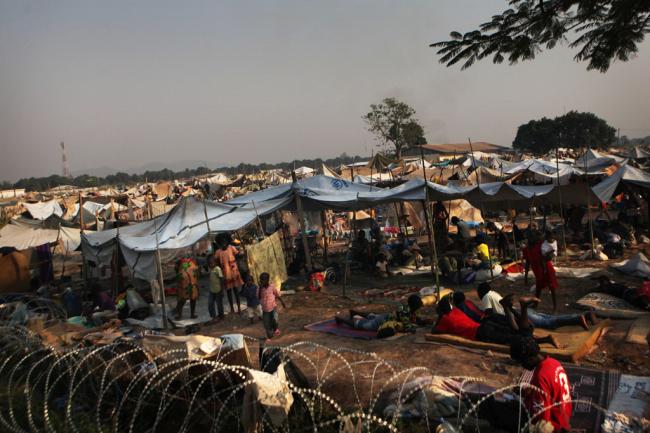23 Jun 2015, 09:55 am Print

In a statement issued earlier Monday afternoon, the UN spokesperson confirmed that the Secretary-General remains “deeply concerned” by the allegations of sexual exploitation and abuse of children committed by foreign military forces not under UN command, as well as the Organization’s own response to the allegations.
The three-member panel – which will include Marie Deschamps of Canada; Hassan Bubacar Jallow of Gambia; and Yasmin Louise Sooka of South Africa – will aim to review both the allegations and the UN response and any shortcomings in existing procedures covering serious crimes by the Organization and related personnel, host State forces and non-State actors that it may become aware of during its review.
The panel will also conduct its work independently and will receive unrestricted access to all UN records and full access to staff members and other UN personnel, the statement added.
“The UN will make its best efforts to facilitate the access of the panel to non-UN personnel,” the spokesperson’s statement continued. “In addition to those that the panel may reach out to, any person who wishes to provide information relevant to the External Independent Review is encouraged to contact the panel directly through an external email address that will be announced shortly.”
The three panel members will begin their work in July and aim to submit a report within ten weeks and will operate with the mandate to make recommendations on how the UN should respond to similar allegations in the future.
Photo: UNICEF/Pierre Terdjman
- India rejects allegations, urges Pakistan to tackle its ‘home-grown ills’
- Massacre in Islamabad: ISIS takes responsibility for deadly Pakistan blast
- Friday turns fatal: 31 dead, 169 injured in shocking Pakistan mosque blast
- Explosion at packed mosque in Pakistan turns Friday prayers into scene of carnage, 15 dead
- Security forces handicapped: Pakistan Defence Minister’s shock admission on Baloch violence





-1763561110.jpg)
